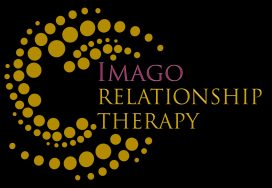Many adult survivors of incest/sexual abuse have undergone therapy, perhaps joined support groups and even confronted the perpetrator(s). No matter how much healing we do, it seems that we are never truly healed and the effects of what happened are so deeply embedded in us that they become a part of our core identity.
We can, on an intellectual logical level, put judgement aside and with compassion know that the person who did this to us is a deeply wounded soul but in itself, that is not enough to set us free to be whole again. When I talk about wholeness I mean embracing all the parts of ourselves that we had to give up to protect ourselves and survive childhood. Take our joy back, take risks, be curious, spontaneous, dream, playful and just being who we are.
We might think that we have released all attachment to the perpetrator and what happened, but as we get on with our lives and particularly as we age, we cannot help looking back on that little child that we once were and feel some grief and sorrow that the joy and spontaneity of childhood was stolen from us.
We might even wonder what could have been if we had had a safe, secure environment to develop and grow, knowing that we were loved unconditionally, wondering perhaps if we would have made different choices about friendships and other relationships and whether we would have performed any differently at school or in sports.
All children want to feel safe, secure and loved. Secure and safe in their physical environment; secure and safe knowing that they have an identity, they are validated and heard as an individual. Children look to their parents or caregivers to provide unconditional love and meet their physical, emotional and mental needs.
When a parent or caretaker uses the child for their own sexual gratification, they are meeting their own needs and simply de- humanizing the child. The child is there simply to fulfil their needs and thus becomes an object. Because the parent is an authority figure, the child is powerless.
Adult survivors of incest/sexual abuse have an underlying core belief about themselves and the environment:
“I am nothing”
“My needs are not important”
“I have no needs”
“I am here to serve”
“I don’t deserve love”
“I am not good enough”
”I am not safe”
“I have no choices”
“It is not safe to be vulnerable”
“Intimacy is dangerous”
“It is not safe to trust”
Whenever adult survivors of incest/sexual abuse are in situations where they are uncomfortable, these old beliefs re-surface unconsciously again and again and again….and become our default setting. They are expressed in our interactions with others; be it socially, in the workplace or with our intimate partners.
We can express these beliefs in distinct ways:
Being passive – not expressing opinions or minimizing. Being afraid of disagreeing with others, afraid to ask for what we want, looking to others to make decisions and tell us what to do. This person will look to their partner to make them happy rather than taking responsibility for their own happiness. They may also have no boundaries or have difficulty setting boundaries.
Or … Being controlling, domineering, maximizing or striving for perfection. They are terrified of opening themselves up to vulnerability. They keep their feelings to themselves, they won’t cry openly or show any tenderness or softness. They often have a tendency to want to be seen as perfect, whether it is in the work, their appearance or their home.
The underlying emotion beneath these behaviors is fear: of rejection and abandonment. The perpetrator may have made the child feel “special,” perhaps singling them out for special attention, told them that the family would fall apart if they told anyone. The burden of responsibility for the happiness of the whole family, therefore, rests with them and they have to diminish themselves to survive.
The healing/growth for adult survivors of incest/sexual abuse is to recognize when those old feelings come up; realize that they are being pushed down into those old patterns of thought; become cognizant and tell themselves that those feelings have tentacles that extend back into the past; they are what the little you internalized, thought and believed. Acknowledge that we survived the horrific impact and it does not belong and/or that it can be healed in the here and now.
If you are an adult survivor of incest/sexual abuse go to the website of Survivors of Incest Anonymous for resources and support.
Read more about past incest survivors here.
There are many challenges for the partner(s) of an adult who has survived incest; Learn about Imago Relationship Therapy which provides a safe environment for a couple to express how they feel.
Be well and take care of yourself.
Blessings on your journey,
Paula





